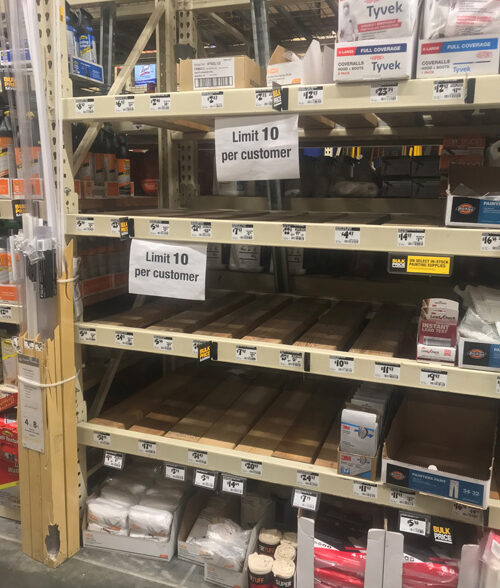
In the past week, confirmed cases of the 2019 Novel Coronavirus (COVID-19) – which started only a couple of months ago in China – made their first appearance on the U.S. West Coast, and then just days later made it to the West Coast of Florida.
Health officials at all levels of government expect the number of U.S. cases to increase rapidly now that testing is more widely available, and it seems highly likely that at some point COVID-19 will be found to have reached the Treasure Coast.
How worried should Vero Beach residents be about this virus? How should you prepare for its possible arrival here? How can you and your family members avoid COVID-19? What should you do if you think you have it? What will its impact be on life in our community?
The answer to these questions will change from week to week. As this situation evolves, we will try in this column to provide the latest best information from health officials on COVID-19 and Vero Beach.
How worried should I be about COVID-19?
The Centers for Disease Control and the Florida Department of Health say about 80 percent of people infected will only come down with a mild illness, like a bad cold or the seasonal flu.
Those at greater risk of serious illness and hospitalization include the elderly and people with underlying health conditions like heart disease, high blood pressure, obesity, asthma, COPD, auto-immune disease or existing chronic illness.
What is currently the closest case to Vero Beach?
A man in his 60s has been found “presumptively positive” in Hillsborough County (Tampa) 140 miles away. A woman in her 20s has also been found to be “presumptively positive” in Manatee County (Sarasota).
How quickly is it likely to appear here?
State or county health departments have given no indication that it has yet spread to any Florida areas other than these two.
What should I do to avoid the corona virus?
Wash hands frequently for at least 20 seconds with soap and dry thoroughly. If soap and water are not available, use hand gel containing at least 60 percent alcohol. Do not touch your face, mouth, nose or eyes. Avoid close personal contact, shaking hands, etc.
What should I do if I feel ill?
If you have a cough, fever, congestion, body aches – pretty much the symptoms of the regular winter flu – stay home from work or school. Cover your mouth and nose when you cough or sneeze. Cough or sneeze into your sleeve or elbow. Work remotely if possible. Avoid going out in public.
What should I do if I think this may be COVID-19?
Do NOT automatically go to a hospital or urgent care, unless it is an actual emergency. The Florida Department of Health and CDC recommend calling your regular primary care physician first to describe your symptoms and give the office staff the chance to prepare for your arrival.
If you do not have a regular doctor or cannot get a timely appointment, call the Indian River County Health Department at 772-794-7400 or the 24/7 Disease Reporting line at 772-794-7472. If you do have to go to the hospital or to an urgent care facility, call ahead to let them know you are coming and what symptoms you are experiencing.
Will they test me for COVID-19?
If you have symptoms and test negative for Influenza, or have a recent travel history to a COVID-19 hot spot like China, South Korea, Iran or Italy, you likely will be tested. This generally involves a nasal and mouth swab and mucus sample.
If I’m tested, how long before I will know the results?
The turnaround time is currently 24 to 48 hours.
If I have COVID-19, will I be hospitalized?
Only if your case appears serious, or if you have other risk factors, are you likely to be hospitalized. You will probably be advised to self-quarantine (stay home) for up to 14 days.
If I do not have COVID-19, is it currently OK to travel?
If you are planning to fly or board a cruise ship, be prepared to answer questions about your travel history and undergo a health screening for symptoms. You may have your temperature taken and if you are sick or are running a temperature above 100.4 degrees Fahrenheit, you may be prevented from boarding or from continuing to your destination.
If I later find I’ve traveled to a COVID-19 hotspot, what should I do?
Call the Indian River County Health Department to report your travel history and be prepared to self-isolate for up to 14 days. Or call the Florida Department of Health COVID-19 Hotline at 866-799-6121 between 8 a.m. and 5 p.m. weekdays, or email COVID-19@flhealth.gov.
If COVID-19 comes here, will they close schools?
Make sure you are signed up with your child’s school for email, phone and text alerts in the event that a localized outbreak necessitates a temporary school closure.
What should I do as a business owner or manager?
Limit face-to-face meetings, offer employees opportunities to work from home if that is possible. Provide hand sanitizer and disinfecting wipes at the office, and ensure that all heavily-used surfaces are cleaned frequently.



